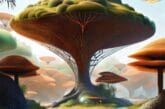The 2010 police insurrection turned failed coup d’état against Ecuador’s President Rafael Correa illustrates the many shades of gray between national sovereignty, ethnic and regional autonomy, multinational corporate development interests, and international political movements.


The Long Revolutionary Road Back from Neoliberal Corporatocracy
The police insurrection turned failed coup d’état against Ecuador’s President Rafael Correa illustrates the many shades of gray between national sovereignty, ethnic and regional autonomy, multinational corporate development interests, and international political movements. While traditional progressive supporters eventually called for mobilization and support of the president, indigenous and labor groups voiced their disillusionment with his administration. Some even called for Correa’s resignation and disbanding of his government and parliament. Challenges to their regional authority, compromises with foreign interests, and an autocratic ruling style has created a rift in Correa’s popular support that may have encouraged right-wing groups to sponsor the police rebellion, attempting to overthrow his government.
Of course, President Correa was up against significant financial and political pressure following the “lost decade” in Ecuador where, between 1996 and his election in 2006, there were three coups and ten different presidents. Ecuador faced a profound economic crisis coming from institutional corruption, privatization of public resources, and globalization of the national economy from International Monetary Fund (IMF) structural adjustment measures. Hence, industrial development and resource extraction had been fostered through IMF and World Bank loans, the proceeds which benefited multinational corporations and a few powerful in-country operatives. The general program undertaken in countries across the world basically sells off the country’s petroleum reserves, precious mineral deposits, national industries such as telecommunications and infrastructure provision, removing government price controls and import quotas, reducing tariffs: hence, free trade. Low-cost peasant labor and a pliant political elite keep the machine running. Significant loans in Ecuador were incurred to establish this development “progress,” which could never be paid back, basically ensuring the country’s labor and resources are continually used to service the mountain of debt.
Furthermore, it was the Ecuadorean National Police that had a history of defending the different regimes, enforcing the harsh IMF “shock therapy” with militaristic methods and significant human rights abuses. Elements of this historical ruling structure remain in place until today. According to the publication ¡Presente!, the commander of the National Police had studied at the US Western Hemispheric Institute for Security Cooperation in Georgia, USA, the notorious “School of the Americas,” that trained agents of the military dictatorships prevalent in the region throughout the previous decades. It also should be noted that the two main leaders of the overthrow of Honduran President Manuel Zelaya Rosales in 2009, General Vásquez Velásquez and General Prince Suazo, were also graduates of the very same school (we will get to the Honduran connection later). Circumstantial evidence to be sure, but definitely part of the constraints to bringing social and political stability to Ecuador.
See the piece by Ecuadorean filmmaker Oscar León from The Real News…
A Charismatic Leader of Visionary Social Democracy or Deal-Making Authoritarian?
Rafael Correa, a charismatic progressive economist with a PhD from the University of Indiana, came to power in the left-wing wave that swept through thirteen Latin American countries, especially following Hugo Chávez in Venezuela, Evo Morales in Bolivia, and Luiz Inácio Lula da Silva in Brazil. Expectations were high that Ecuador could part ways with the multinational corporatocracy and their loan traps in favor of supporting Indigenous rights, labor and environmental protections, and social investment that had been so lacking in previous decades.
Correa, true to form, proceeded to sign a new constitution, renegotiated oil compacts, doubled healthcare spending, increased social welfare services, and negated $3.2 billion of the foreign debt that was deemed “illegitimate.” He balanced the budget and funded his social infrastructure programs by a more efficient tax collection. He charged numerous bankers with corruption and even lowered his own wage. And to crown the defeat of the rightist old guard, Correa did not renew the US military base at Manta, citing national sovereignty.
These many issues were central to the overthrow of President Zelaya in Honduras last June, underscoring the threat to Correa’s rule, and many predicted the latter would be next. Wage increases, social welfare programs, membership in the bartering and mutual trade integration pact with ALBA-member countries (Bolivarian Alliance for the Americas), and opposition to multinational-centric “liberalized” free trade agreements, all were implied reasons for the coup d’état in Honduras. As well, the move to transform the US-financed Soto Cano (Palmerola) Air Base into a new airport for Tegucigalpa even further compounded Zelaya’s threat to US domination, pointing to great risks for the government in Quito and their rejection of the base at Manta. The Obama Administration’s eventual support for Honduran coup-dominated “elections” and funding military and police in a country with massive oppression, human rights abuses and murder of resistance members and journalists seemed to encourage coup-plotting without consequence in other budding democracies straying from the doctrine of oligarchic-administered free trade.
Correa has been criticized from the left regarding the collapse of a Forest Partnership to protect 2.4 million acre Amazonian Yasuni National Park, one of the world’s most biodiverse regions. Foreign governments agreed to pay Ecuador to leave the 870 million barrels of oil reserves in the ground, keeping the money in a fund to be administered by the United Nations, using the interest to pay for reforestation, social aid to indigenous communities, and clean energy projects. Correa blasted the deal, calling for “responsible exploitation” of Yasuni oil reserves, and characterizing a trust fund managed by the UN “a violation of national sovereignty.” Though still trying to establish a new partnership, the turnabout alienated many indigenous and environmental interests.
To make matters worse, earlier in September 2010 the Correa Administration sent 1,500 military and police to the southern Amazonian region of Zamora-Chinchipe to evict small-scale indigenous miners in the name of environmental remediation and preparation for long-term regional land use planning. This move was perceived as assisting the Canadian and Chinese large-scale gold and copper mining concerns in the region, namely Kinross Gold, Dynasty Metals & Mining, and CRCC-Tongguan. These foreign interests had been encouraged by Correa following the mining law reforms of 2008-09 that strengthened state control and participation, encouraging top-of-the-line technology and avoiding the serious impacts associated with large-scale mining. Correa also had personal feuds with local legislators, and was perceived as dismissive to the autonomy of the Indigenous organizations, not adhering to the 2008 constitutional mandate for a decentralized Plurinational State that would allow for regional and ethnic self-determination.
A further complication has some individuals alleging that the Confederation of Indigenous Nationalities of Ecuador (CONAIE), one of the most powerful social movements in Latin America, had funds at its disposal from the National Endowment for Democracy (NED) and USAID that could somehow provoke the organization into destabilization of the government of Ecuador. While it is possible that certain individuals associated with CONAIE might have received some funding, it is clear that the organization is no US puppet and has legitimate issues with Correa’s policies and ruling style. Respected lawyer and author Eva Golinger has pointed out that the US policy of “smart power” strategically uses diplomacy, persuasion, capacity building, military power and economic and political influence to silently infiltrate civil society organizations in order to promote a US agenda. The Obama Administration allocated $320 million in “democracy promotion” funds for Latin America in the 2010 budget, far more than was ever allocated for such things under the Bush Administration. It has been documented that funds had been spent through the NED in Honduras to influence the outcome of political events in 2009. No similar allegations have been proven in Ecuador, and these funding arms finance many social infrastructure programs in addition to democracy promotion, but the link is cause for reflection and further study.
Hence, much like the US Administration of Barack Obama has alienated their left-wing base by ruling from the center, the Correa government has sacrificed regional groups and special interests in the name of working with various international development concerns, weakening crucial support, leaving him vulnerable to attacks from many angles of the political spectrum. Another cautionary tale was the 1980s Revolutionary Sandinista’s treatment of the Atlantic Coast Miskitu, violating their long-held autonomy in the name of “national unity,” an alienation that provided the guerrilla-boots-on-the-ground for the Contra War, funded and directed by the US CIA and Miami-based Nicaraguan dissidents. Weakened on the left, internationalist anger building, the stage was set in Ecuador for insurrection.
September 30, 2010 – A Coordinated Attack
The day began with a protest by 1,000 police against perceived unfair wage and benefit changes, following Correa’s threat to lawfully dissolve Congress to pass his version of the Public Services Law. Disruption of transit and burning of tires turned into a physical confrontation between Correa and police, prompting a full-scale rebellion with teargas and live ammunition attacks. Correa ended up kidnapped in a nearby military hospital for ten hours until a Special Operations team rescued him.
See Part II of Oscar León’s piece from The Real News…
Low-ranking Air Force members shut down Quito’s base and closed the international airport, while police violence repressed Correa’s supporters and prevented parliament members from accessing the National Assembly. Ecuador TV, the state television station, was broken into by political groups supporting the coup, attacking the relay antennas. The police rebellion, and accompanying looting and rioting, appeared simultaneously in Quito and the largest and most populous city near the Pacific Coast, Santiago de Guayaquil, as well as two other regions, illustrating coordination of attacks beyond the initial police protest. The unrest left ten dead and 274 people injured. Though some sectors have maintained there was no coup, only a riot, the events on the ground do not support this theory.
Though a statement from four indigenous organizations rejected the “right-wing’s actions that in an undercover way form part of an attempted coup” and called upon their members to mobilize in support of the government, they also criticized him for violently repressing movements against transnational mining, oil extraction, and agro-industrial companies. Labor leaders also called for support of Correa, but still criticized him for lacking dialogue with critical social sectors.
According to the North American Congress on Latin America (NACLA), former president of Congress, Alberto Acosta, a Correa supporter-turned-critic, hopes that his former ally will learn from the rebellion. “History has given to President Correa, once again, the opportunity to reacquaint himself with the origins of the revolutionary process, to rectify. Hopefully he understands it that way.”
Updated July 1, 2016













Pingback: Ecuadorean Amazon Under Oil Assault to Service Chinese Debt | WilderUtopia.com